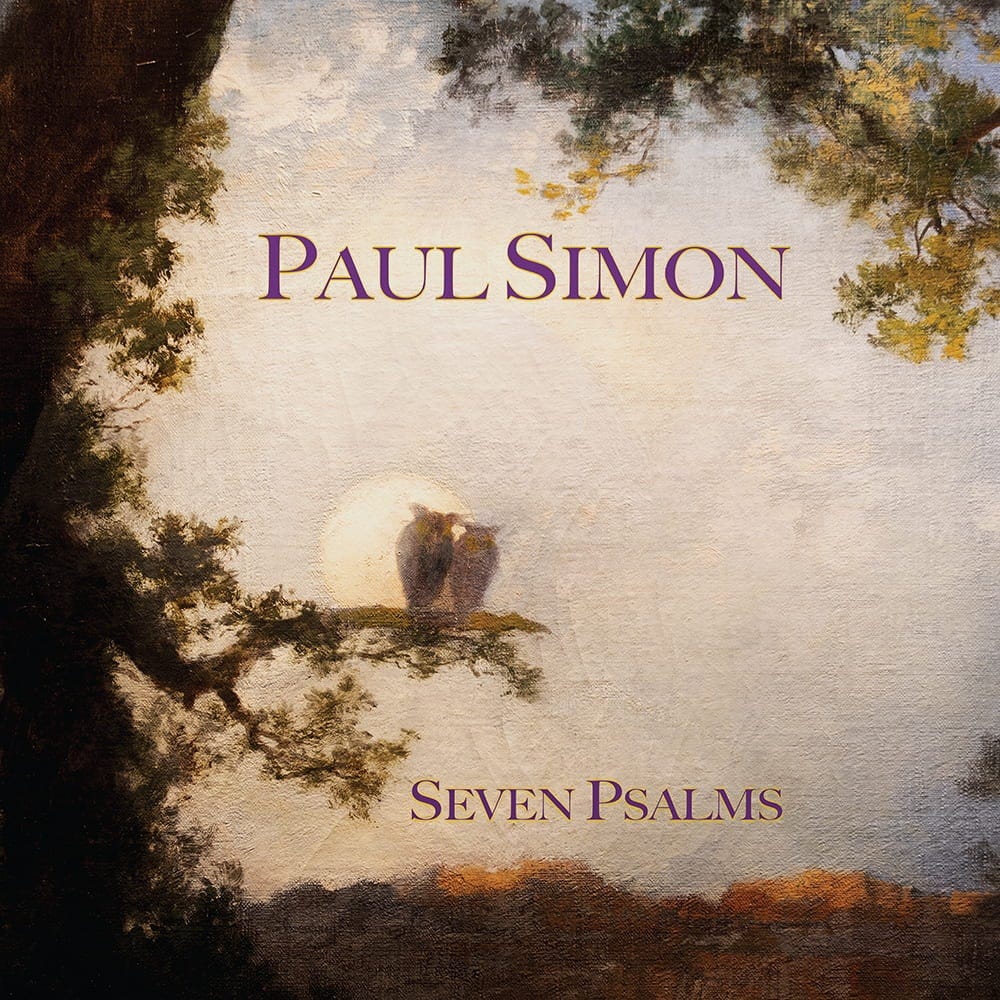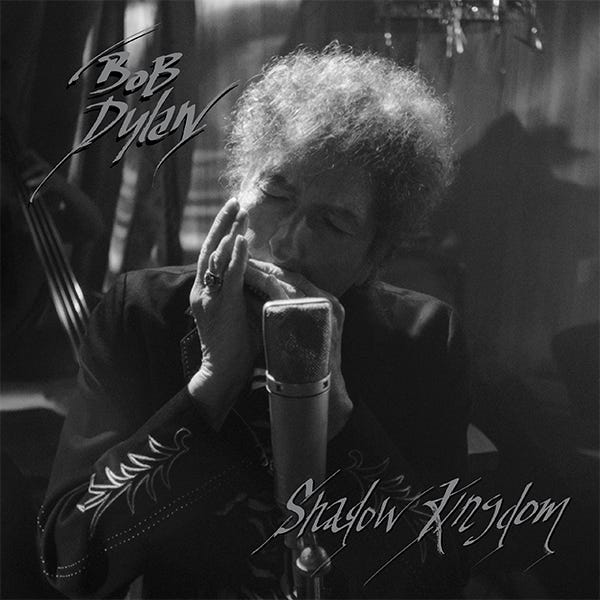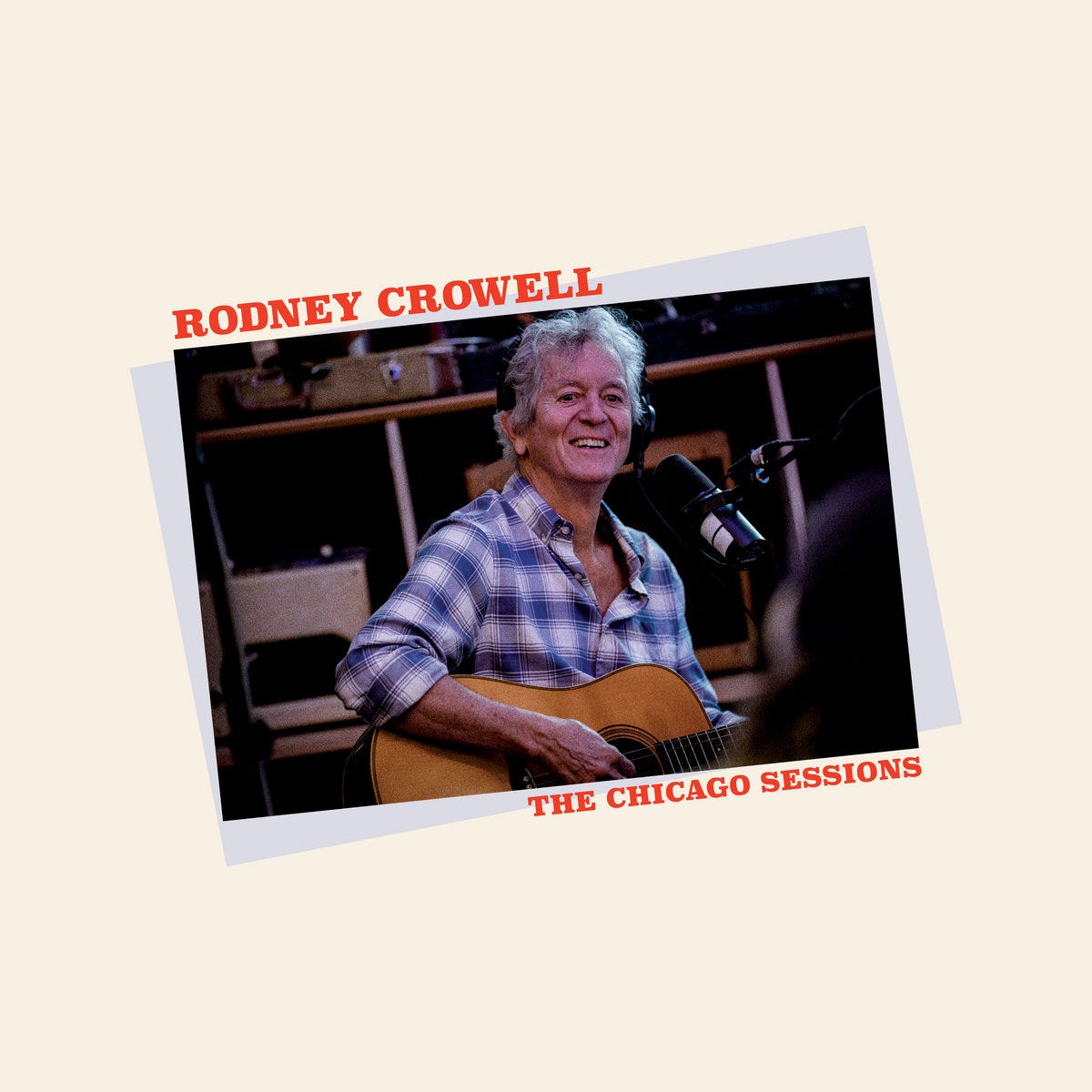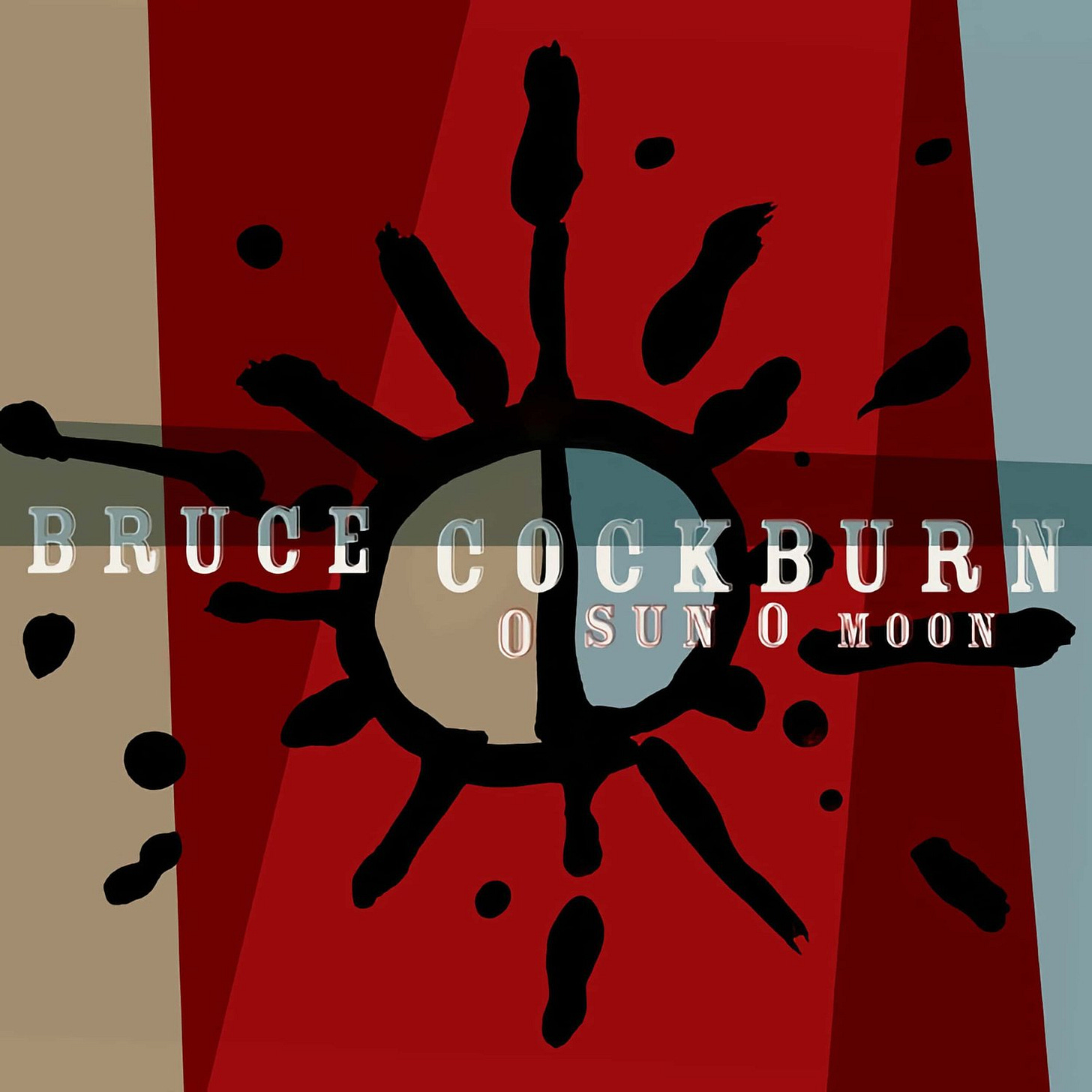Adventures in Listening, July 17, 2023: The Old Guard
Arresting new albums from four living legends: Paul Simon, Bob Dylan, Rodney Crowell, and Bruce Cockburn.
Paul Simon - Seven Psalms
Ostensibly, Paul Simon should be enjoying a well-earned retirement right about now— but brushes with mortality have a funny way of scrambling our priorities. Born from a series of pandemic-addled dreams, Seven Psalms is a piece of explicitly devotional music, modest in its scope but urgent and purposeful in its impact. Lasting just over half an hour, its songs are structured as a seamless and interconnected suite; on streaming platforms, Seven Psalms is presented as one continuous track, meaning you’re unlikely to encounter this music in the context of a playlist. That’s appropriate for an album that asks for sustained attention, developing and repeating its themes through variations and callbacks, inviting meditation rather than casual listening. Musically, it is a masterful synthesis of all the things Simon does well, focusing on deft guitar work, conversational vocals, and clear melodies; yet there are also some sly rhythmic inventions befitting the man who gave us Graceland, including a shambling, bluesy shuffle in the “My Professional Opinion” section. Simon’s guitar work is foregrounded but not exactly unadorned. He plays amidst a holy thrum of bells and chimes and gongs, and— toward the album’s end— the angelic appearance of his wife Edie Brickell on harmony vocals. In terms of lyrical content, Simon spends much of the album trying to get a clear snapshot of the divine, relying on a series of shifting metaphors. Often these metaphors capture the playful essence of faith: Notice how the Lord is first likened to a train engineer and later to a recording engineer, the catalyst for Simon’s life in songs (and in psalms). Occasionally, the imagery turns grim: “COVID virus is the Lord,” Simon intones at one juncture, a sobering acknowledgement of how a disease can seem sovereign over matters of life and death. Such moments of solemnity, accompanied by the demanding structure of the piece, make it unlikely anyone will play this as frequently as they do, say, There Goes Rhymin’ Simon or The Rhythm of the Saints, yet nothing about Seven Psalms makes it feel like a footnote to Simon’s towering discography. In fact, the album captures something essential about living, as we all do, in the face of death— and doing so with a sense of awe, a sense of humor, maybe even a sense of hope.
Bob Dylan - Shadow Kingdom
The Never Ending Tour hit a bump in the road during the COVID pandemic, forcing the restless Bob Dylan to take his show to the streaming ecosystem. The Shadow Kingdom film was a curious document, finding Dylan backed by a masked-up and drumless string band, reinterpreting classics and semi-obscurities from the 60s and early 70s. As with all things Dylan, there was a fair bit of trolling involved: For one thing, it wasn’t actually a concert film so much as mimicked accompaniment to a series of pre-recorded performances, which helps to explain both the pristine studio clarity of these songs as well as Dylan’s graceful singing, all of which shines through on the new companion album. Anyone who’s caught Bob on a particularly croaky, wheezy night on the road will be gobsmacked by the elegance and control of his singing here; though his instrument is limited he commands it with precision and theatrical flair, and Shadow Kingdom joins Rough and Rowdy Ways and Triplicate as a late-career vocal highlight. The band includes ringers like Don Was and T-Bone Burnett, and while the lack of a drummer means they never quite achieve the same kinetic mayhem of Blonde on Blonde, there’s something to be said for how they highlight the hallucinatory blur of “Most Likely You Go Your Way (And I’ll Go Mine),” how they stretch “Pledging My Time” into an anguished crawl, and how they give “When I Paint My Masterpiece” a buoyant bop. Dylan does a ton of great harmonica playing and serves as a magnetic master-of-ceremonies in “Tombstone Blues,” slowed considerably but somehow sounding as carnivalesque as ever. The album highlight is the one song of relatively newer vintage— “What Was it You Wanted,” a withering rebuttal from 1989’s Oh Mercy. It could be the voice of God asking Job where he gets off questioning how the universe is run; or the indignation of a creator who’s tired of his fans’ unreasonable expectations. Dylan has been plundering and reinterpreting his own back pages for decades now, but on Shadow Kingdom he does it with particular skill, vision, and panache— making it a minor entry in his catalog, perhaps, but a deeply satisfying and illuminating one.
Rodney Crowell - The Chicago Sessions
Rodney Crowell stopped making big-budget, mainstream country albums a long time ago, but he never stopped being one of the genre’s most stalwart songwriters. He’s been prolific throughout his elder statesman era, with each new album feeling like a new high watermark, and The Chicago Sessions is no exception. He made this one with friend and fan Jeff Tweedy, who produced the set in his Loft studio, and the result is a work of casual virtuosity, bearing witness to Crowell’s eloquence as a songwriter as well as his command of American roots tributaries. Tweedy captures Crowell and his band playing with an appealing looseness— check the skipping barroom piano in “Lucky,” or the bawdy blues of “Oh Miss Claudia”— and he even shows up for a duet on “Everything at Once,” one of the most tuneful and propulsive pop songs Crowell’s come up with in ages. As ever, Crowell is peerless as a bard of wistfulness and regret, and if there’s nothing here that’s quite as masterful as “It Ain’t Over Yet,” “Loving You is the Only Way to Fly” is certainly an achingly acute picture of unrequited desire. The album also includes a cover of “No Place to Fall,” from fellow Texas troubadour Townes Van Zandt, and a dispensary of accrued wisdom called “Ready to Move On”— songs that help make The Chicago Sessions a rich portrait of who Crowell is as a musician and as a man.
Bruce Cockburn - O Sun O Moon
For more than 50 years, Bruce Cockburn has been a patron saint among spiritually-inquisitive and politically-engaged singer-songwriters, distinguished by his crazy notion that Christianity’s rigorous ethics, commitment to social justice, and open mind toward the supernatural can all coexist— and deserve to be taken seriously. You’ll hear all of that scattered across O Sun O Moon, his first non-instrumental album since 2017 and his best in at least 20 years. For Bruce the benevolent, check “Orders,” a quiet song about Christ’s call to love the unlovable, the difficult, the undeserving— and to recognize our own place among them. For Bruce the devotional, consider “When the Spirit Walks in the Room,” which holds out belief for the unexpected kindness and presence of the Lord. Of course there is also plenty of deft guitar work— folksy shuffles, acoustic blues, dexterous finger-picked narratives, one lovely instrumental called “Haiku.” If I have any complaint about the album, it’s that Cockburn’s voice, always fairly thin, sounds more sputtery than ever at age 78. Then again, Cockburn has always had good taste when it comes to harmony singers, and here his support crew includes such luminaries as Allison Russell, Shawn Colvin, and Buddy Miller. O Sun O Moon isn’t quite as expansive or as visionary as The Charity of Night, which remains my favorite Cockburn album, but it’s operating on roughly the same plane— and it’s as good a place as any for the uninitiated to enter the fold.








